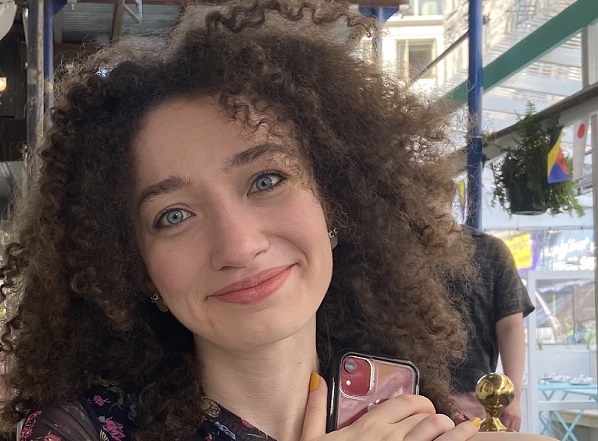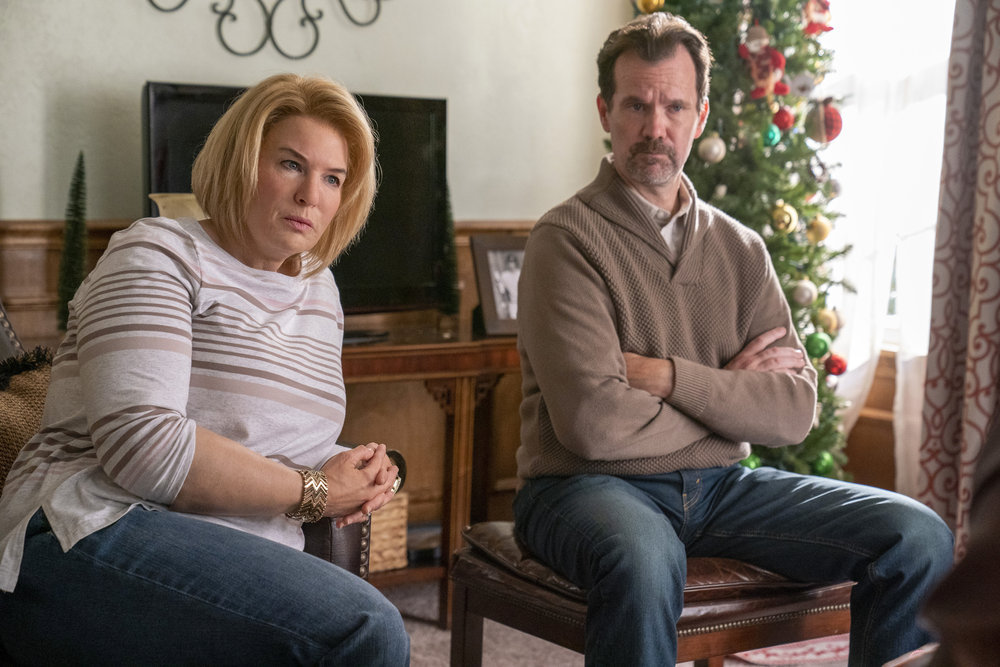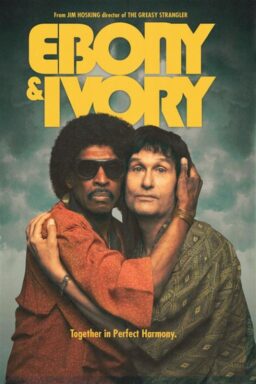The thing about the new NBC limited series “The Thing About Pam” is that it’s emblematic of a relatively new phenomenon, one that speaks to just how dominant episodic storytelling has become in our media landscape. Not too long ago, it was all too common to see stories that would have been better for episodic television ineffectively crammed into feature films, the plots of phonebook-sized tomes chopped beyond recognition to have a beginning, middle, and end in under three hours. But now the script has been flipped—the default is episodic, even to a fault. Now, it’s the stories that feel like they would be perfect for a three-act structure and two-hour runtime that are instead being spread thin into series.
The true story of Pam Hupp (Renée Zellweger), the seemingly prototypal suburban wife and mother who murdered her friend Betsy Faria (Katy Mixon) for her life insurance money, and nearly got away with it until she pushed her luck too far and killed again, definitely has more than enough drama to fill six episodes. But the approach of “The Thing About Pam,” at least in the four episodes provided for review, does not. Showrunner Jenny Klein effectively emulates the “Dateline” air, with help from Dateline correspondent Keith Morrison—who hosted the true crime podcast from which the miniseries is adapted—while also bringing the inherent weirdness of “Dateline” and the whole true crime entertainment complex to the fore. There’s nothing inherently wrong with this angle, indeed it’s quite innately appealing, but the easy-viewing procedural of it all, with clearly delineated villainy and victimhood straight out of the gate, makes for a story so straightforward it has no choice but to spin in circles. On one hand, “The Thing About Pam” maintains a comedic edge, but on the other, it often backs away from truly committing to the bit; you can almost feel the show fretting over how far is too far for an NBC series based on a true crime involving real people, all of whom (save Pam’s victims) are still alive.

Renée Zellweger is a phenomenally talented actress with a particular knack for voices and affects, but the show’s approach to Pam’s character is so shallow and broad that there’s nowhere for her to go but one-note mimicry, particularly in the first three episodes. That being said, after the initial murder conviction of Pam’s intended patsy, Betsy’s mercurial husband Russ (Glenn Fleshler), is successfully appealed by his defense attorney Joel Schwartz (Josh Duhamel), things do begin to get more interesting. Suddenly the master manipulator finds herself on increasingly shaky ground, and Zellweger gets more substance to work with.
Unfortunately, this does not happen until the fourth episode—also the last one made available to screen for review, leaving it unclear if the final two installments will maintain this momentum, or if this spark of life is more of a fluke. Aside from Pam, this episode also sees incompetent county prosecutor Leah Askey (Judy Greer in an impressive eyesore of a Kate Gosselin circa 2008 bob) finally taking a more dynamic turn, as preparations for Russ’ retrial finally force her to realize that “star witness” Pam might actually be a trojan horse. Prior to this point, it’s only really Joel Schwartz, seemingly the only person immune to Pam’s spell, who passes a particular threshold of dynamism. While it’s impossible to claim without viewing those final two installments, the first four do almost leave the impression that, at least as far as this version of Pam Hupp’s story is concerned, the inciting incident might be Russ’s retrial, not Betsy’s murder. Considering this does not happen until after the halfway point of the series, it’s decidedly unfortunate.
There’s a far more effective feature film story here that’s been stretched out to what feels about three times its natural length, magnifying the story’s shortcomings and introducing additional problems, such as the lack of momentum in the first three overstretched episodes. While there are other elements of Pam’s life that the show could have explored prior to Russ’ retrial, the series has minimal interest in them. The attendant at the local mini mart where Pam gets her usual soda (“Chill Chugz” is the show’s euphemism for Big Gulp) has more of a solid presence in the series than Pam’s husband Mark and certainly her children.

We are told about Pam’s reputation as a doting wife and mother far more often than we are shown any evidence of how she’s come to earn such a reputation. “The Thing About Pam” does not depict her as a wolf in sheep’s clothing, just a wolf that everyone describes as a sheep for deeply unclear reasons. Yet at the same time, from the very beginning there’s a palpable tension between Pam and others, even when they swear she’s a model citizen and a dear friend. When Pam shows up at the home of Betsy’s mother Janet (Suanne Spoke) to collect her on the night of the murder, Janet looks no more excited to invite Pam in than if she had found a solicitor on her doorstep. Betsy’s family doesn’t even consider that Pam could be involved in the murder, which isn’t a product of her being an effective manipulator so much as the suburb of Troy, Missouri being treated here like some strange faraway place, or the Twilight Zone.
Ultimately, “The Thing About Pam” is a watchable if often underwhelming true crime docudrama that wants to both be weird and play it safe, ending up in a strange middle ground between the two. Still, the series shows the potential it might have a much stronger end than it does start—if one doesn’t mind wading through a rather stagnant first half.
Four episodes screened for review. “The Thing About Pam” premieres on NBC at 10pm ET on March 8.












